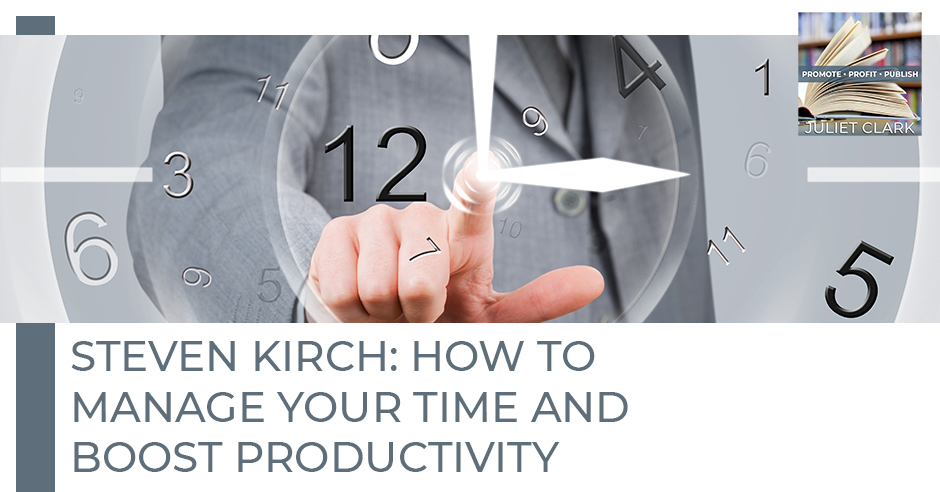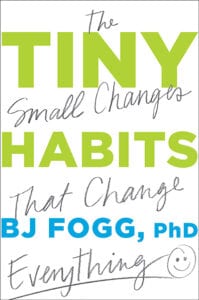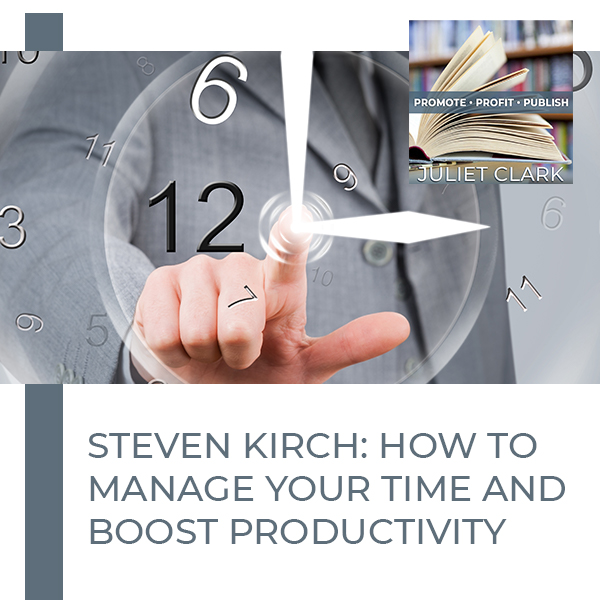
Entrepreneurs typically have calendars peppered with goals to hit and tasks to accomplish. To make these plans go beyond these papers, you must learn how to boost productivity. But more often than not, there is so much to do but very little time to fit them all. Addressing this problem with Juliet Clark is Steven Kirch, the CEO of Profit Minds, LLC. Together, they share tips on maximizing your time to get everything done through effective meditative sessions and proper goal tracking. Furthermore, they touch on the importance of nurturing relationships with your audience, even beyond just closing a deal.
—
Watch the episode here
Listen to the podcast here
Steven Kirch: How To Manage Your Time And Boost Productivity
Before we get started with our guest, I want to invite you to go over to YouTube and follow us on Super Brand Publishing. You can see all the videos of the great people that I interviewed. You can see that they’re real people. You get to see all the great stuff. Don’t forget to go over and take our Promote Profit Publish Quiz. You can find it at www.PromoteProfitPublishQuiz.com and find out if you have all the visibility it takes to publish a book to make your business more visible in all of those places you need to be to get more clients. That’s what we’re here for.
Our guest is one of my favorite clients. I love what he’s doing in the world. His name is Steven Kirch. He is the CEO of Profit Minds, LLC. Following a successful career as a manager and leader in high tech, Dr. Steven Kirch brings his passion for helping small businesses to his clients. His goal is to help small business owners generate more clients, close more sales, and increase their overall revenue and profits quickly inexpensively so that they can live the life of their dreams. Dr. Kirch has been a certified facilitator of the 7 Habits of Highly Effective People for years and uses that along with a variety of other tools to enable his clients to co-create custom approaches for the integration of these time-tested strategies into their business. He’s a productivity guy. He’s a business growth strategist. For those of you who’ve ever worked with a business growth strategist, sometimes it can be overwhelming. Steve brings that back down to Earth so you can get it done well.
In addition, he’s on the board of The Gratitude Network, a leadership development organization that works with social entrepreneurs around the world to enable the growth of these innovative companies that are changing the lives of children and youth all over the world. Dr. Kirch has a passion for music. He sings with The Fog City Singers in San Francisco. He has appeared on stage in theatrical productions at the Bankhead in Livermore and when not busy with music, you can find him on his bicycle or on the golf course. He has been married to his wife, Donna, for many years. He has two wonderfully intelligent and talented daughters who are making their own way in the world. Thank you, Steve. Did you write that all by yourself?
I had a little help. One of my daughters teaches writing at Columbia, so she helps me with most of my copies.
Before we get started, sing as something.

Boost Productivity: The motivation didn’t have to be high. You may just need to think about changing your habits.
This is from my favorite musical, Man of La Mancha. This is the title song. “Hear me now, Oh thou bleak and unbearable world. Thou art base and debauched as can be and a knight with his banners all bravely unfurled. Now hurls down his gauntlet to thee. I am I, Don Quixote, the Lord of La Mancha. My destiny calls and I go, and the wild winds of fortune will carry me onward. Whithersoever they blow. Whithersoever they blow, onward to glory I go.”
We’ve never had a singer on our show before. Thank you for playing along. I did not even tell him this was going to happen.
I am not warmed up. It’s early in the morning and it’s what you get.
It’s smoking in San Francisco so it’s probably affecting his vocal cords. Thank you for being such a great sport. We are going to talk about something here. Steve, you have been working as a productivity coach for many years. Tell people what that means and how you’re integrating it with your business growth strategist business as well.
As you pointed out, I became a certified facilitator of the Covey 7 Habits because I found the material when I took it. When I took the class, I found it personally transformational. I was inspired that I wanted to teach people and I found real joy and passion in the lights that go on in people’s eyes as they get it. What I’m teaching is not rocket science. These are things that are relatively simple and easy concepts, but they’re hard to implement. Over the years, while I was at Intel, that’s where I spent the majority of my career. One of the things that they do is require senior leaders to teach at least three classes a year in order to keep the culture going. Often, I would teach this kind of class.
As I contemplated giving up my corporate gig, some people call that retirement. I don’t think that’s an appropriate term because I’m certainly not retired. The thought of bringing that to small businesses, to people who are struggling to get stuffed on to figure out which of the hundreds of thousands of things that everybody has on their to-do list. How do you pick from those? How do you decide what to do next? Covey company has interviewed hundreds of thousands of people and ask them, what fraction of your time do you spend working on things that are important versus things that are not that important? The average over hundreds of thousands of people is about 60% and 40%. About 60% of people’s time spent on the important stuff and about 40% of your time on stuff that’s not that important.
By doing and eating that big ugly frog, you've created a win for yourself for the day. Share on XI’ve taught this class to hundreds of people, myself, and that’s the answer that I get almost, plus or minus, 1% point in every class that I’ve taught. They take a pre-class assessment and that’s what they tell me. What does that mean for an entrepreneur for a small business owner? If you’re doing a ten-hour day, that means probably four hours of your day is working on stuff that’s not that important. My goal as a productivity coach was to figure out, “I’m not going to get you all for that. That’s ludicrous to claim, but if I could get you an hour of that back, what would you do with it?”
Many small business owners got excited about that. Think about that. One of the questions I asked was, “Would you do product development? Would you do business growth or business development? Would you take that hour and spend it with your family? What’s the value of that?” It was hard for small business owners to tell me what an hour of their time was worth. Most of them have no idea. It was difficult for them to understand what true value in dollars and cents I was bringing them.
I’m a very systematic person. When I came across this systematic way of addressing business growth, I said, “Here is something that I can help my clients understand exactly what the value of what they’ll be working on is.” It is systematically getting more prospects, turning those prospects into clients, taking those clients, maximizing the value of those clients, looking at the pricing structure, and then finally, profitability. What’s the bottom line? How does this work? Are you making enough money? Sitting down with a small business owner for 45 minutes to 1 hour, I’ll find $50,000, $75,000, $100,000 in untapped revenue that they can implement fairly simple strategies. The hard part of course is finding the time to do it because everybody is busy. With COVID, all of the extra stuff that you’ve got to do because the kids are home. You’ve got to worry about getting them onto their Zoom call for school, or you’ve got all of this other stuff going on that in 2019, we didn’t have to worry about. Those are the things that I talked to the small business owner about. It’s how to grow your business and then how do you find the time to implement those strategies?
That is so cool. What’s so awesome about this is a couple of things. It’s the difference between working in your business and working on your business, which many of us end up with, especially small businesses. I remember when I was the CFO for a company, I was the janitor. Half the time, I was doing human resources, which you can imagine, I suck at that like “Get out of my office. I’m not into drama.” I would make a horrible human resources manager, but it’s the difference between doing all of those things and working on that lead generation piece of your business, which is pivotal to growing it every day. It’s also habit management because this learning to do this in a new way requires you to break small old habits, doesn’t it?
My favorite book on habits is Tiny Habits by BJ Fogg. We all talk about motivation and our problem is we’re just not motivated enough. He says, “That’s almost always the last thing you should work on.” What you should do is make it easy to do it. You should take small steps. My favorite story out of the book is he wanted to learn how to do more pushups. What did he do rather than say, “I’m going to do as many pushups as I can every day,” he would say, “Every time I go to the bathroom, I’m going to do two pushups.”

Tiny Habits: The Small Changes That Change Everything
He had a prompt which was going to the bathroom and he had the ability to do something two pushups. Anybody can do two pushups. The motivation didn’t have to be high. You need to think about changing your habits, not in terms of, “I’ve got to have this grand plan.” Make it tiny and take a small step. When I wanted to start journaling in the evening or before I go to bed, I put the journal by my bed. I had a prompt and I said, “Steve, all you have to do is write today’s date in the journal.” That’s all I’m going to require. That’s the small step. I haven’t missed a day. Sometimes I don’t write much more than that. Sometimes it’s a two-minute thing. I’m too tired, but I journal every night. That’s a new habit.
I’m imagining this thing that says, “Too tired and tired.” I’ve always been super motivated. I love Brian Tracy’s book Eat That Frog! Those things that you put off are on your list day to day, do them first thing in the morning. When you can get that habit and do that thing you hate first thing in the morning, the rest of the day is a breeze.
By doing and eating that big ugly frog, you’ve created a win for yourself for the day. It doesn’t matter what happens the rest of the day, the day is a victory.
With the end of 2020 coming up and productivity being important to 2021’s budgets and people are deciding what they want to do and how are they going to do it, how do you do this and make it all profitable in these times?
That’s a good question. The real key here is to take a look at your lines of business. What are the businesses that you do? I encourage all of my clients to work with the CPA and accountant. Don’t do it on a spreadsheet but sit down. This is a good time to do that. You’ve got to get ready for your taxes. You should have somebody look through your books and you should figure out if you have several different offerings that you make, which we call lines of business, look at the ones that are profitable. What are the ones that bring you joy? Those are the ones that you will invest in. I can tell you all of the tricks about productivity, but fundamentally, if you don’t enjoy what you’re doing, you’re not going to do it.
If you don't enjoy what you're doing, you're not going to do it. Share on XIf you don’t get some satisfaction, that’s one of the things that cause us to procrastinate. There are six, but one of the things is that there’s no personal benefit. There’s no, “I love doing this.” Look at your lines of business in terms of not only profitability, but what do I enjoy? If the thing that you enjoy the most is not terribly profitable, maybe it’s time to look at what it is that you’re doing there that makes it not so profitable. Fundamentally, I can’t change your motivation. Motivation is way too fickle to rely on that in terms of changing your habits. That’s the approach that I would take. You’ve got to get your records together. Tax time is coming so better do that at the beginning, in December, rather than waiting until January when it’s too late. Get your records together, take a look at your business, go through them with somebody who has some financial savvy like a CPA, and figure out and set your goals based on what did you do and where do you want to focus that effort. That’s the thing that brings you the most joy. If we’re not having fun, we’re not doing it.
That is true, but here’s an even further point. When you’re putting that together and making it fun, here’s what happens with most budgets. My friend, Catherine Bell, tells me this all the time. We do them and then we shove them in a drawer and we never look at them again. Be sure there’s a plan behind that. How do you do that so that you can take what’s on that paper and put it into an active plan?
The thing that I recommend for my clients is that every week at the beginning of the week, I like to do this on Sunday evening. I ask my clients to decide, what roles do they play in their life? You should pick 5 to 7 that are most important to you. Maybe only a couple of those are associated with your business. For me, in Profit Minds, I work on the business and in the business. Those are two. I do client work and I also do business development. That’s in the business and on the business, but I’m also a singer, a musician although that’s been hard in 2020. I’m a family man. I am very involved in my church. I’m involved in The Gratitude Network, the nonprofit where I’m on the board. I balance those. I’m also an athlete. I do work out a bunch of times a week.
Sit down with your roles and each of those roles should have a goal. Some of these goals we’re talking about where the business goals. There’s an on the business and an in the business aspect to those things. What are you doing in terms of business development? What are you doing in terms of bringing in revenue? Most small business owners are good at working in the business that’s why they got into it. They’re not so good at being a business person. I’m working on the business and making sure that the business is set up for the future. Look at your goals for that role and write down 1 or 2 most important things that you could do toward those goals. Set those up at the beginning of the week. Here’s the trick, find time on your calendar when you’re going to do that. Block it out and put down specifically what you’re going to do. If you’re going to work out three times this week, don’t just say, “Maybe I’ll do Monday at 2:00, Wednesday at 7:00 AM, and Friday.” Put it on your calendar. You’re much more likely to do the thing.
That is such great advice too. I remember back in real estate, we used to have to block out our prospecting time because that’s how you generated leads. I still, to this day, do that. I don’t take my first appointment until 9:00. I work out, I command and I get some basic things done before I start taking calls. You have to be able to manage and do that with your time to get everything in.

Boost Productivity: Sit down with your roles and determine what the goals for each role are.
I had a client who would do that and she would also make a daily plan, which I recommend because your weekly plan works until five minutes after 9:00 on Monday.
Especially on Monday, because it’s always that I’m slammed with this.
Take a look and reconnect with those things. What were your intentions for the week? Reconnect with those as you make your daily plan. What did I miss yesterday? What am I struggling with? Where do I need to refocus my energy in terms of getting that stuff done? You need to make sure you connect your daily plan with your weekly plan so that every day as you’re rejiggering, because of what did or didn’t happen. Maybe it’s a great opportunity and you’ve got to push some stuff out of the way because you have this great opportunity that came up. All of that is wonderful, but there’s a cost associated with that, an opportunity cost.
Make sure that you look at your plan and what your goals are every week. I like to do this on Sunday evening. As I looked at the week ahead, what white space that I have? Where could I do stuff? Some people like to do it Monday morning when they’re fresh. It doesn’t matter. At the beginning of the week, take a look at what are 1 or 2 most important things for each goal, put it on your calendar, and then reevaluate that every morning. Don’t look at your email first. That’s the worst productivity thing you can do because then you’re reacting to what other people are asking you to do instead of doing the stuff that’s important to you.
I want to add to having the routine. Steve says he does Sunday. For me, on Friday afternoon when I finish up or Friday morning sometimes because I play golf on Friday. I write next week what are going to be my appointments? When do I have gaps? I also do this. I have the appointments on a lead sheet to make sure that I’m talking to ten new people every week. I’m failing because I only have four on there. I’m on LinkedIn getting that made up because I played golf last Friday. That’s the thing. You have to incorporate too who are these new people you’re going to talk to, whether it’s your LinkedIn prospecting or partnerships. Talk about that a little bit because those ten new people are either partners. They’re new clients that someone’s referred. There’s somebody that I’m following up. Talk about the partnership a little bit on with the generating revenue.
This is an interesting avenue that people don’t take real advantage of. People don’t take advantage of their referral relationships the way they should. A lot of people talk about affiliates and if you get me a client, I’ll send you some piece of that. That business and that’s fine. A kindergartner can set that up. The real way to forge a relationship and to get referral partners to want to refer things to you is if you can help them with a problem that they have with their clients. Let me illustrate in a couple of different ways. I have a client who’s an interior designer. She works very closely with construction people who then rebuild the house or the commercial space. She goes in and designs it and they do the build and the actual construction.
The worst productivity thing is to react to what other people ask you to do instead of doing the things that are important to you. Share on XHow does she make herself valuable to that construction person so that anytime the construction person finds a potential client, he or she refers to that interior designer? There are a couple of things that construction people don’t like to deal with. They don’t like to have to talk to the clients in the midst of a job about decisions that they still need to make, like redoing a bathroom. What faucet are you going to use? What tile are you going to use? All of that stuff. They don’t like doing that. The interior designer says to the construction person, “I’m not going to hand this design over the wall to you. I’m going to be your project manager through the entire process. I’m going to walk with you. Any of that client interaction, I’ll handle it. I’ll make sure that those decisions are made so that it doesn’t impact your ability to get the job done. You will never have to wait for that.”
How much more likely is that construction worker, that contractor to refer business to that interior designer versus somebody who does a design and throws it over the wall and says, “Here it’s yours?” I alluded to this. I do similar things with CPAs for my coaching business. The biggest problem that CPAs have with their clients is that they show up around the 1st of February, the 1st of March with a box of receipts and a pile of invoices and says, “My taxes are due soon. Can you help me?” From a CPA and a tax preparation perspective, it’s already too late to do anything about what happened last year. That stuff has to happen in December. I say to the CPA, “Send me a couple of those clients. I promise you that every client that you send me will see you at least twice a year, if not four times a year.”
You can do some accounting work and some financial advising and helping that business owner understand his or her finances, which is what the CPA loves to do. They can also charge that client more because they’re seeing them four times a year and taxes become easy. It’s already done at the end of the year when you get to December. The value that I’m bringing to the CPA is not that I’ll send you 10% of the business, but they’re going to be able to grow their business because they’ve referred that client to me. When you’re thinking about referral partners, think about the challenge that those referral partners have with their clients that you can help with.
We have discussed this before. A click is not a relationship, this whole affiliate thing. People want real relationships. Another way that you can help is, if I gave someone to Steve, I might say something like, “They shared with me that they’re having problems here.” Vet people and build relationships. You know exactly what those people you’re referring do because you can maximize their business as well with what you’re putting in. Something that Steve may not pull out of them right away because he doesn’t know them as well as you do. You can suggest when you build those relationships with those partners. I have quite a few partners. Probably 90% of my business is a referral. I talked to those partners all the time. “What are you doing? Have you shifted? Can you do this?” Don’t rely on a click because the click is not a relationship, no matter what the digital marketers tell you.
If you can get one new referral partner, a quarter who sends you one client a month, that’s a huge growth in your business. You wind up with 30 new clients by the end of the year.

Boost Productivity: Always make sure you connect your daily plan with your weekly plan.
With COVID, online networking groups, and things like that, are they a must in this environment? I know you’re a guy who does a lot of networking groups in person, do you think?
I still think it is all about the relationship. You need to find the right group for you, people that are your sphere. The people that serve us the same clients that you do. You need to find the right networking group. There are lots of different ones around. They are all virtual at this point. Who knows when they’ll go back to being in person? In fact, I’ve joined one that is a national group and it will never be other than on Zoom, but I’m building relationships with people in New York, Florida, Tennessee, and Wisconsin, even the State of Utah. You need to build those relationships. You need to have a virtual coffee meeting periodically with those people, connecting that way and reaching out. The first call should not be, “Can I sell you something?”
I was going to add that in. It’s about, “Here’s what I do, but it’s not selling.” That’s important.
You should be more interested in hearing what they have to say than in telling them what you have.
I agree, but that also means that you have to set that time aside every week. What are those? I belong to two national networking groups. One of them, I get lots of business from. The other one, I’m still vetting so that when you’re in there as well, look at it for two months, are you getting ROI? Are you getting leads? Is this worth your time to do? We tend to stay in those groups too long sometimes.
I’m not sure if I would agree with the two months in. It may take a little longer for some people to build those relationships, particularly, when you don’t have the opportunity to sit down with them in person and the relationship that you’re building here is over Zoom. It’s not the same quality of relationship, I have to admit that. I probably would give it a little longer than that, but you’re right. People sometimes stay in those groups that are not a good fit for them. I did that myself. I stayed in a group a little bit longer than I should have because I liked the people and the energy in the room. I was a part of an in-person group. When we went online, I still had those relationships, but it wasn’t bringing me enough business. I had to say, “Farewell.” I’m not a perfect person in this, but I’m learning as well.

Boost Productivity: The real way to get referral partners to work with you is to help them with a problem they have with their clients.
I think these Zoom interactions are here to stay. In fact, it’s been a boom for my business because I used to do all of my business in person in coffee shops. I’ve realized, “I can do this thing effectively over Zoom. I miss the ability to physically connect with some of my clients, but I can be effective over Zoom.” It’s opened up the whole nation to me. I can go elsewhere. I’ve been talking to somebody in South Africa. There’s a silver lining to every cloud. You just have to find it.
We’re getting back more into person to person events. I’ve turned a couple down because it’s like, “Why do I want to get on a plane? I can do this from home now. Why do I want to stay in a hotel and eat bad food and not be able to run?” We’re all learning to balance a little bit differently and do things differently. I don’t know that I will ever go to in-person events again because I’m getting more value from the online and connecting that way. It’s very interesting what we’ve all pivoted and done in 2020.
There are learning opportunities all around.
Steve, where can we find you if people want and need this kind of stuff? If guys don’t wait until January, where can we find you? Do you have anything you want to give us away?
Thanks to Juliet, I have a quiz surprise. It’s a way of understanding your profitability and how are you doing with getting leads and clients and those kinds of things. It’s at www.TheProfitQuiz.com, go there, it’s a five-minute quiz. When you finish that, you get a copy of the Conversion Equation Evaluator. It is how well is your marketing material getting to your prospects? How well does it grab a hold of them and get them to sign up for your lead magnet? It’s a PDF that you’ll get for free. You can also go to my website, www.ProfitMinds.net, and get my eBook. I have a book called Mind Your Profits, and it lays out some of those strategies that we use with our clients. You’re welcome to do that as well.
Thank you, Steve. Go over and look him up. We all have gotten a little off track this year. Year-end is a perfect time to get all of this together and get 2021 planned and take off on the right foot.
Thank you, Juliet. I enjoyed the conversation.
Important Links
- Super Brand Publishing – YouTube
- www.PromoteProfitPublishQuiz.com
- The Gratitude Network
- The Fog City Singers
- Tiny Habits
- Eat That Frog!
- www.TheProfitQuiz.com
- www.ProfitMinds.net
About Steve Kirch
 Following a successful career as a manager and leader in high-tech, Dr. Steven Kirch brings his passion for helping small businesses to his clients. His goal is to help small business owners generate more clients, close more sales, and increase their overall revenue and profits quickly and inexpensively, so they can live the life of their dreams.
Following a successful career as a manager and leader in high-tech, Dr. Steven Kirch brings his passion for helping small businesses to his clients. His goal is to help small business owners generate more clients, close more sales, and increase their overall revenue and profits quickly and inexpensively, so they can live the life of their dreams.Love the show? Subscribe, rate, review, and share!









Leave A Comment